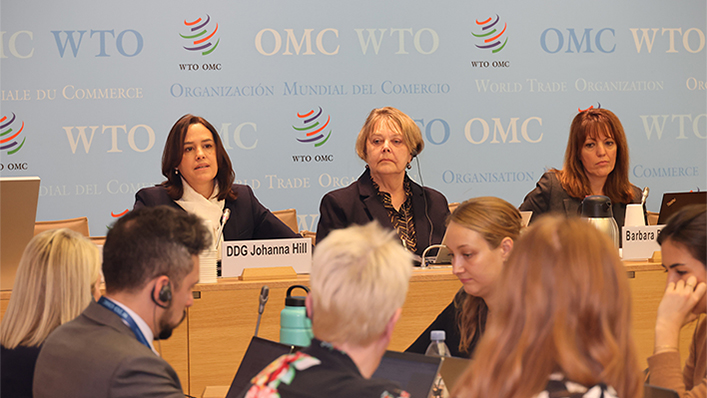
Accession negotiations
Costa Rica submitted its application to join the GPA 2012 in September 2023. It is the first Central American WTO member seeking to become a party to the Agreement. Leonor Obando, Government Procurement Coordinator at Costa Rica’s Ministry of Foreign Trade, stated: “Starting the GPA accession process is a logical step for a country that has undertaken [government procurement] commitments in most free trade agreements and has amended its government procurement framework to make it consistent with international best practices”. Parties applauded Costa Rica for having promptly circulated its initial market access offer.
Albania, China and the Kyrgyz Republic also provided updates on the progress made in their accession negotiations and related developments. GPA parties encouraged the three acceding governments to step up their efforts with a view to advance the negotiations promptly. More information on accession to the GPA can be found here.
Other matters
The Committee re-elected Martin Zbinden of Switzerland as chair for one year. Parties also considered matters related to the implementation of the Agreement, and the Committee’s three work programmes on sustainable government procurement, on small and medium-sized enterprises and on the collection of statistics.
Also under discussion were recent notifications by parties, regulatory and legislative developments within GPA economies, information-sharing in the Committee and new procedures for the circulation, derestriction and translation of GPA-related documents. The WTO Secretariat also updated parties on further improvements to the e-GPA Gateway underway.
Information-sharing workshop on digital procurement technologies
On 21 March, the Committee held its second information-sharing workshop on the role of digital technologies in supporting trade and competition in government procurement processes. Experts, practitioners and policymakers discussed the utilization of digital technologies in government procurement practices, the lessons learned, and how this could be embedded in the WTO’s government procurement discussions.
In addition to exploring the benefits of new digital tools in automating tasks, using predictive analytics and enhancing fraud detection, the workshop highlighted potential risks, such as the violation of privacy and skills gaps.
In her opening remarks, WTO Deputy Director-General Johanna Hill said: “Digital procurement and international trade depend on one another and are mutually supportive. … Trade facilitates the procurement of reliable and affordable digital procurement technologies, while procurement by digital technologies facilitates trade.”
Moreover, she emphasized that: “The WTO is striving to deliver through trade for all. The Government Procurement Agreement and the work of the Committee are part of this philosophy. We need to ensure that digital procurement can benefit all actors, regardless of their size, their development status, their central, regional or local nature.”
Next meeting
The next meeting of the Committee will take place in mid-June.
Background
The GPA counts 22 parties (covering 49 WTO members, counting the European Union and its 27 member states as one party). While it is open to all WTO members, this plurilateral Agreement is binding only for those members that have joined it. The list of current GPA parties and observers can be found here.
Each applicant’s terms of participation are negotiated with GPA parties. These terms are set out in each party’s schedule (available from the e-GPA Gateway), which defines its commitments with respect to:
- the procuring entities whose procurement processes will be open to foreign bidders
- the goods, services and construction services open to foreign competition
- the threshold values above which procurement activities will be open to foreign competition
- exceptions to the coverage.
The GPA aims to open up government procurement markets to foreign competition in a reciprocal manner and to the extent agreed between GPA parties. It also aims to make government procurement more transparent and to promote good governance.
Reciprocal market opening assists GPA parties in purchasing goods and services that offer the best value for their money. The Agreement provides legal guarantees of non-discrimination for the goods, services and suppliers of GPA parties in covered procurement activities.
Share
Reach us to explore global export and import deals